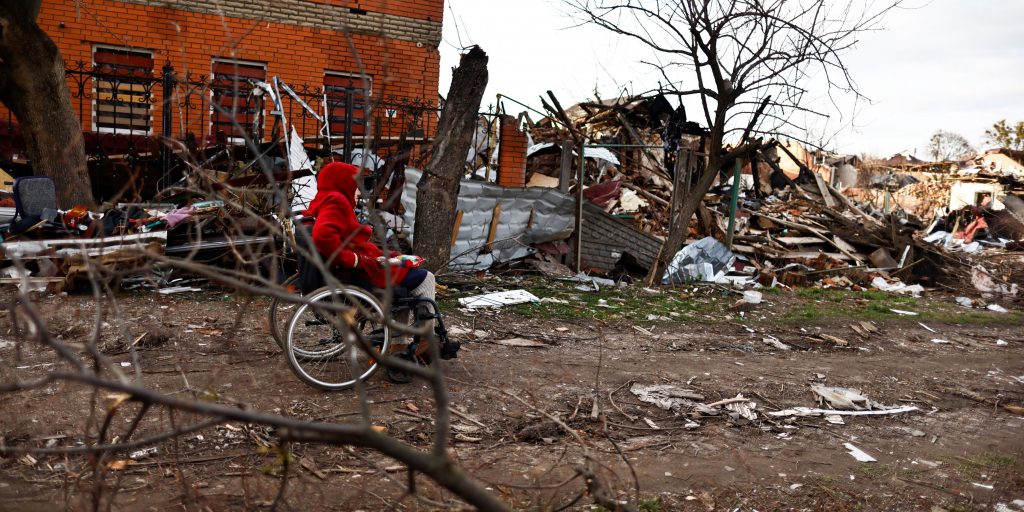- The UN has warned that the lives of 2.7 million people with disabilities in Ukraine are at risk.
- Many people with disabilities are trapped in their homes and have no access to medication or food.
- Very few recorded refugees are disabled, indicating most were forced to survive inside the war-torn country.
The United Nations has warned that the lives of 2.7 million people with disabilities in Ukraine are at risk due to Russia's invasion.
The UN Committee on the Rights of Persons with Disabilities statement said people with disabilities "have limited or no access to emergency information, shelters and safe havens, and many have been separated from their support networks."
It added that "there are ongoing reports that many people with disabilities, including children, are trapped or abandoned in their homes, residential care institutions and orphanages, with no access to life-sustaining medications, oxygen supplies, food, water, sanitation, support for daily living and other basic facilities."
The committee also notes that women with disabilities are at a heightened risk of rape and sexual violence by Russian forces.
Russia has previously bombed a care home for disabled people.
While more than 4.8 million people have fled Ukraine due to the war, the UN committee notes that very few of these people — or even those who are internally displaced — are disabled, indicating few have been able to leave their homes.
A spokesperson from the US Partnership for Inclusive Disaster Strategies, helping evacuate people with disabilities from Ukraine, told The Independent that there is a "lack of wheelchair support" and a "big lack of transportation."
One disabled Ukrainian man, Oleksandr Nikulin, told Insider's Ryan Prior about his journey out of Ukraine and how he is now helping other disabled people to cross the border.
He said, "transporting refugees with disabilities often requires a lot of special tools, knowledgeable workers, and accessible accommodations, which can be expensive. Many of the organizations catering to refugees are not equipped to deal with refugees with disabilities."
Anna Kaminski, a volunteer at the Ukraine-Poland border, told Insider that she hasn't "seen any special provisions being made for the arrivals of elderly or disabled people."
